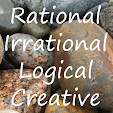The University of Phoenix became the nation’s largest private university by delivering high profits to investors and a solid, albeit low-overhead, education to midcareer workers seeking college degrees.Imagine that, when a university focuses too much on profit academic quality decreases. Who would have guessed?
But its reputation is fraying as prominent educators, students and some of its own former administrators say the relentless pressure for higher profits, at a university that gets more federal student financial aid than any other, has eroded academic quality.
Sunday, February 11, 2007
Ya think?
NYT - Troubles Grow for a University Built on Profits
Subscribe to:
Post Comments (Atom)


2 comments:
Let me be frank, I’m not going to vouch for U of P. I do however think that for-profit education works. Actually the fact that U of P is struggling and their struggles get national attention shows that it works. Hear me out.
Whether we’re talking about education or microwaves, sales price is the best gauge of the value of the product and profit is the best measure of the combined product and management quality. Providing a product of poor value can cause profits to diminish, which is immediately noticed. In U of P’s case or in the case of any publicly traded company the pressure on management to shore up the profit is swift and intense. They have no option but to increase the value of their product or they lose their job. It is a powerful force for improvement.
Just think how long it might take at a traditional university to identify and rectify the problem of one or more of their degree programs losing value. There is no indicator analogous to profit to help identify problems early. At best you could use admissions, but that metric is common to both non- and for-profit schools.
I don’t personally think much of the U of P in particular and I doubt my company would pay for employees to take courses there, but they couldn’t charge $9,630 per year if A) students didn’t think the education was worth it or B) if employers didn’t recognize the degree in the form of higher pay.
No one should expect to get the same quality of education through U of P’s MBA program as they would at Northwestern’s Kellogg MBA program since the cost is not at all similar ($41k - $55k per year at Northwestern). But, if U of P offers a good education value (taking into account education quality, convenience, etc.) when compared to other schools in the same price range what’s the problem?
I don’t agree with using graduation rate as a measuring stick for them since they serve a dramatically different demographic of students than traditional schools do. As someone who is working on a masters (at UAH) while working a 40-50 hour a week full time job and juggling a family with three kids I can attest to the increased potential for dropping out early. Younger college students (in general) don’t have those same responsibilities, making it much less challenging to complete a degree program.
The traditional schools have good cause to bad mouth U of P as they do in the NY Times article because they represent competition. Asking Columbia what they think of U of P’s product is not much different than asking Ford what they think about Chevy’s trucks. You can’t expect to get an opinion completely free of bias.
Ultimately, if U of P doesn’t improve their product, someone else will do it for them and take their market share. That is the beauty of competition. The impetus to turn a profit will force U of P to react faster than a traditional university could. That is the beauty of for-profit competition.
Sorry for the long comment. I make Joe Biden look succinct.
I can't quite share Brian's optimism about the self-correcting nature of capitalism. A drop in profits might lead U of P to make some changes, but a more traditional, slow-to-change university probably wouldn't have compromised themselves quite so readily to begin with.
Post a Comment